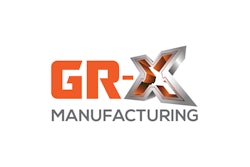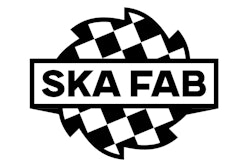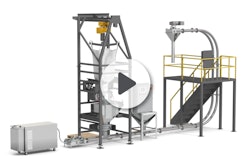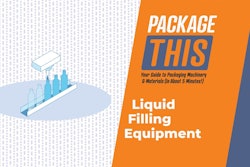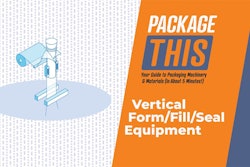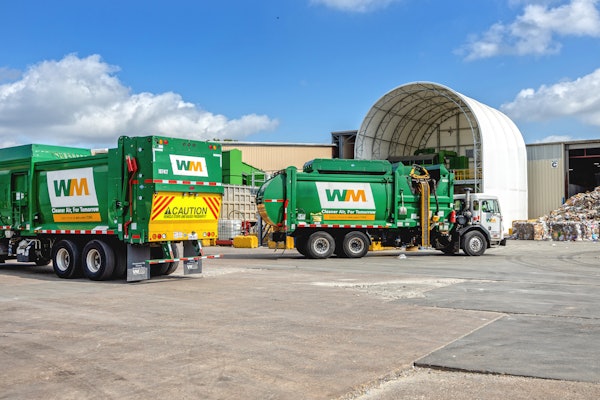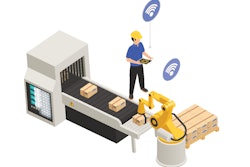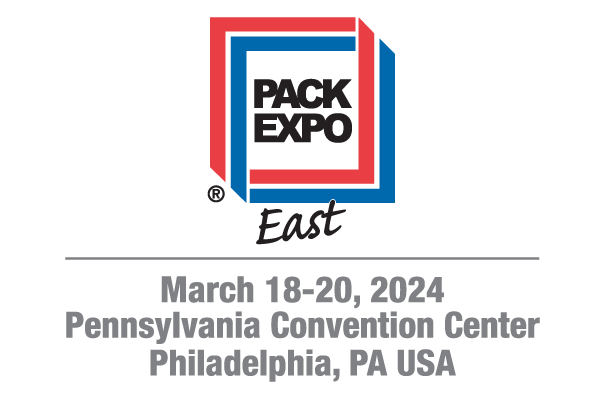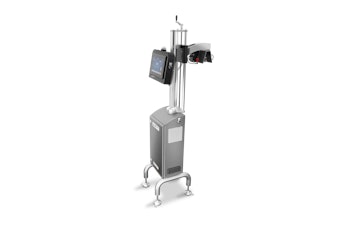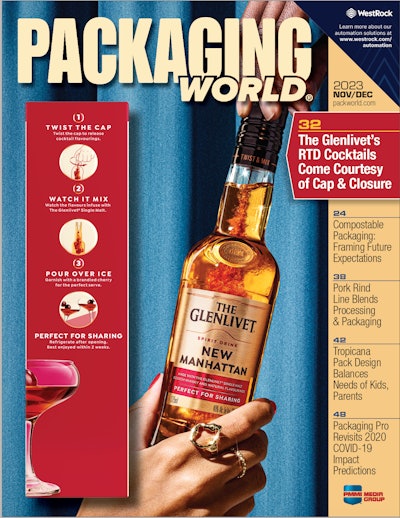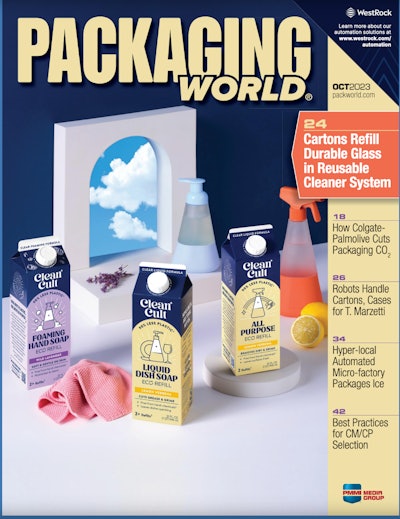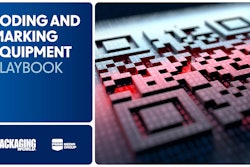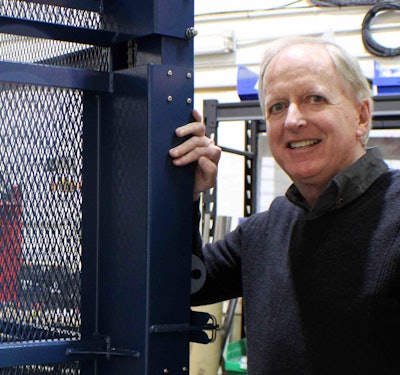
Ska Fabricating started in 2012 as a homegrown answer to the gap in container handling equipment available to small and mid-sized craft brewers. Since then, the product portfolio has expanded beyond palletizing and depalletizing for small startups in the aluminum can beverage industry to accommodate a variety of industry segments, including high-volume palletizing—as demonstrated in its most recent announcement, the BAM Bulk Palletizer which can handle speeds up to 1,000 cans per minute (CPM). Another sweet spot for this OEM is its support for the direct-to-container digital printing industry, as well as providing a culture of problem-solving. And leading the effort is the company’s new CEO, Steve Sherman, who joined Ska Fab earlier this year. OEM magazine recently sat down with Steve to talk about what makes the company unique, why Ska Fab joined PMMI, and what’s next for the machine builder.
OEM: Steve, you started your career as an automation engineer and have worked for big companies like IBM, AT&T, and Nokia. Why did you decide to join Ska Fabricating as CEO?
Sherman: First, I loved the size. I’ve worked in larger organizations that can have heavy bureaucracy and can lose touch with the customer. Ska Fabricating has a global reach, we’re not a startup, but we have the ability to touch customers around the world intimately. I can personally call them. And I give my cell phone number to every customer to call me if they have an issue. Second, the quality and character and culture is off the charts for me. I get to work with good people who want to be here and show up to make something happen, and every person at Ska Fabricating is like this.
OEM: The company has an interesting history. It started as an equipment provider specifically for craft brewers, but then it was acquired in 2021 by two private equity firms. That seems like a very different path for an OEM.
Sherman: I think so. And I think it’s helped build a strong company. The founders [of Ska Fab] are people who set up the development of the platforms, the equipment, and the services we sell. They are operators, they are practitioners, they are not theoretical, they are applied. They are making sure the things that we do are relevant. I believe private equity can help further cement and build on the foundation of the company. The founders had a self-awareness that, for us to take this to the next level, we could use some help, which is what led to the private equity investment. But all of the founders are still on the management board. They want to see it grow. Then, shortly after that we further expanded with the GR-X [Manufacturing] acquisition.
OEM: Was the GR-X Manufacturing acquisition made in 2022 in order to accelerate growth?
Sherman: The strategy was simple, we wanted to find someone who was super compatible [in terms of] how we think about culture and how we develop new products. GR-X had a compatible culture and they even started out on their innovation journey in a similar manner of depalletizing and re-palletizing products. But the most exciting part for me in the chess board of strategy was that Ska Fabricating has a deep vertical intimacy with the aluminum can beverage industry. We’re really good at that. GR-X has a different go-to-market strategy. They went horizontal. They play in steel cans, plastic, glass, and aluminum cans. With this merger we had compatible cultures. And now we have the depth and breadth in this huge global packaging industry.
OEM: Tell me about the recent announcement of the BAM Bulk Palletizer.
Sherman: One of the highest growth areas and transformation going on in our industry is direct-to-container printing. It’s a technology that wasn’t available five years ago and now it’s moving from early adopters to full-scale adoption. This could change the game for how containers are decorated. The smaller volumes you can do, the more personalization you can do, both for the retail shelf but also at home. You have containers at home that are long-standing marketing for the products, and if it touches you the consumer, it reinforces that brand. This could be a game-changer. So, these are high-speed printers. And we are providing high-speed presentation of empty cans into that digital printer, it prints those cans and then they re-palletize so those decorated cans can go off to breweries or any other manufacturer. So [BAM] is the end point of our solution. High volume, but also high mix. Ska Fabricating's BAM Bulk Palletizer.
Ska Fabricating's BAM Bulk Palletizer.
 | Watch this quick video to learn more about Ska Fab’s BAM Bulk Palletizer. |
OEM: Is the direct-to-container digital printing application a differentiator for Ska Fab?
Sherman: Yes, I think it’s because of our competency and know-how. I believe we are the market leader in developing end-to-end solutions for this digital printing space. The market has spoken and said we have something special. But it is much more than the speed, but the whole package. The simplicity of our equipment, the cost effectiveness of our equipment, and the kind of people we are to work with, both on the front end and on the service side.
OEM: So, you are listening to your customers and then you develop a solution to solve the problem. Is that the way you approach things?
Sherman: I always work backwards from the customer. We are totally customer-driven. We do design platforms based on market analysis. You need a platform to have market competitive lead times and market competitive pricing. The competitive secret sauce that differentiates us is that almost every customer has a unique challenge. They want a special configuration. The culture I’m happy to be a part of has an instinct to nod their head and say, “yes, we can solve that.” It’s priceless and you can see it in every Ska Fab employee around the world.
OEM: Why did Ska Fabricating join PMMI?
Sherman: Part of it is obvious thanks to your reputation and what you do. But we believe we are a successful market leader in a few segments of this big automated packaging equipment landscape. And with that GR-X acquisition and this expanded team, we want more. We want to be in front of more of that landscape and participate in that landscape more effectively. And for us, PMMI is a natural facilitator of that community and builder of that community. And it’s not just the PACK EXPO portfolio—which is a tremendous draw for us—but it’s also on the information side. It’s the media, the analysis, and the business intelligence. You can run into a trap when you are so customer focused because you tend to put your head down and just focus on what they need. PMMI provides us an opportunity to look up a bit and say what is the industry perspective, and what can we glean from that, look for weak spots and opportunities and validate our strategic direction for further expansion.
OEM: I keep hearing you say “growth.” What does that mean for the future of Ska Fab?
Sherman: I think we will leverage what we integrated to grow organically over the next few years. We talked about the direct-to-container printing space. The amount of capital investment that is going into that technology begs for a partner who gets containers in and out of those printers quickly and reliably. And we’re good at it, we’re a market leader, and we are at the early stages, so that’s going to be great.
Second, we grew up at the beginning of the craft beer industry, and now it’s a relatively mature space, it’s got a quarter of the beer market. That’s happening again in this “beyond beer” space. In the aluminum can space you see health and wellness drinks, hard seltzers, non-alcoholic, kombucha, coffee, wine…it feels just like the early days of craft brewing. This is a huge area for us where the scalability of our product offerings can help some of those new entrants who are purely beverage innovators and doing 30 cans per minute with a lot of hand production work. We can help them automate. And the breadth of the industry provides even more growth for us. It’s exciting to me, if I look at my last month’s sales, I sold to a glass candle maker, to an aerosol cleaner company, to a motor oil company, to a food spice company, and more. As businesses need to automate, we are there with relevant solutions.
Finally, our fastest growing segment of our business is actually services. We can talk about the incredible story of this hardware and software that makes up our product, but from client feedback, the first thing they tend to respond to positively is the experience they had with our services talent. We’ve got some of the best field service engineers in the world who help innovate. It’s a culture of service and we will continue to expand our service offerings.
